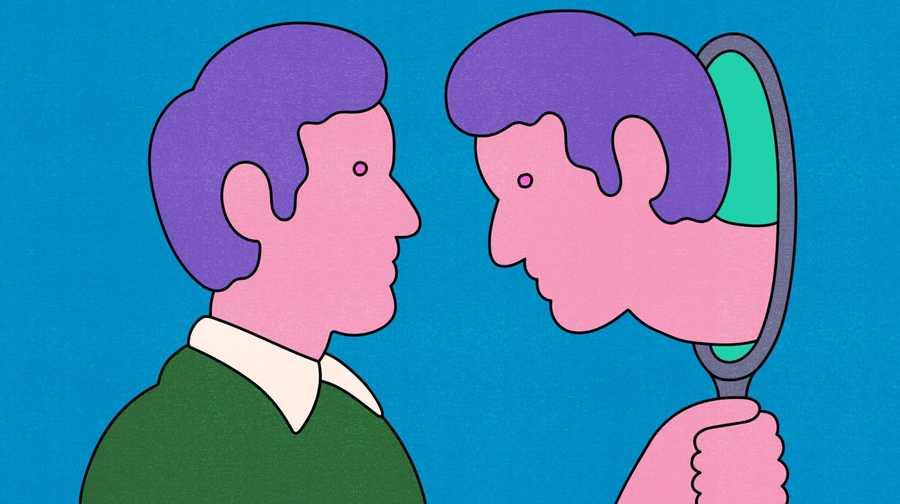Explore the World's Best Ideas
Join today and uncover 100+ curated journeys from 50+ topics. Unlock access to our mobile app with extensive features.
Self-knowledge in psychology
In psychology, self-knowledge is accurate information one possesses about oneself.
This includes knowledge about our emotional state, personality traits, relationships, opinions, beliefs, values, needs, goals, preferences, social identity and behavioural patterns.
166
2.91K reads
Sources that contribute to self-knowledge
- The physical world. It is limited to physical information about ourselves such as height and weight.
- Social comparisons with others who are better off and worse off than us.
- Reflected appraisals. We see ourselves reflected through others evaluations of us.
- Introspection. Noticing our own thoughts, feelings, motives, and desires.
- Self-perception through observing and examining our own behaviour.
- A rational analysis of our negative thought processes through Cognitive Behavioural Therapy (CBT)
- Mindfulness techniques to help assess our emotional intelligence skills.
157
578 reads
The benefits of self-knowledge
- Knowing oneself helps with realistic decision-making, such as life partner choices, education and career, and where to live.
- It helps to form our understanding of others.
- It helps to make sense of experiences.
- It helps with proactive responses instead of reactivity.
- It is important for encouraging positive change.
A lack of self-knowledge leads to over-estimation of one's strengths, which can cause lower life satisfaction.
151
518 reads
Use self-knowledge for self-mastery
- Self-knowledge includes honest self-assessment that can lead to positive changes.
- Self-knowledge leads to a meaningful narrative of our lives and a sense of continuity.
- Knowing ourselves helps us live consistent and fulfilling lives, help to understand our basic motivations, and enable us to control our emotions.
143
464 reads
Psychosocial domains
- Blind spots. These are unconscious processes that prevent us from self-knowledge.
- Self-deception. In this state, we believe our wishful thinking.
- Conflict triggers. These are others' words or actions that are perceived as offensive and create conflict.
145
419 reads
Self-knowledge vs self-awareness
Self-knowledge is information about subjective tendencies, for example, our emotional state or behavioural patterns.
Self-awareness is awareness about our moods or thoughts about that mood. It is the path toward self-knowledge.
146
376 reads
Self-knowledge, self-identity, and self-concept
- Sheldon Stryker states that identity is a part of one's self that is evoked while interacting with other people.
- Self-concept is the image we develop about ourselves. It may or may not be based on reality.
- Self-knowledge comes from a variety of sources, such as external evidence.
- Low self-esteem is associated with a lack of clarity, stability, and consistency of the self-concept.
143
313 reads
Six theories about self-knowledge
- Unmediated observation model - We get self-knowledge through our thoughts, separate from outside knowledge.
- Transparency model - Reflecting and then deciding for yourself about the state of the world.
- Social constructionism - understanding ourselves and the world through the use of language to produce a shared reality.
- "Looking-glass self" - our self-knowledge is developed through interactions with others.
- Narrative self - using explanations and interpretation to create a basis of reality.
- Self-perception theory - people learn about themselves by noticing behaviour and reaching conclusions.
143
364 reads
IDEAS CURATED BY
Heather Burton's ideas are part of this journey:
Learn more about psychology with this collection
The importance of networking in podcasting
How to grow your podcast audience
How to monetize your podcast
Related collections
Similar ideas
7 ideas
What Is Self-Awareness and How to Improve It
productive.fish
5 ideas
What is Self-Reliance and How to Develop It?
positivepsychology.com
4 ideas
Read & Learn
20x Faster
without
deepstash
with
deepstash
with
deepstash
Personalized microlearning
—
100+ Learning Journeys
—
Access to 200,000+ ideas
—
Access to the mobile app
—
Unlimited idea saving
—
—
Unlimited history
—
—
Unlimited listening to ideas
—
—
Downloading & offline access
—
—
Supercharge your mind with one idea per day
Enter your email and spend 1 minute every day to learn something new.
I agree to receive email updates

